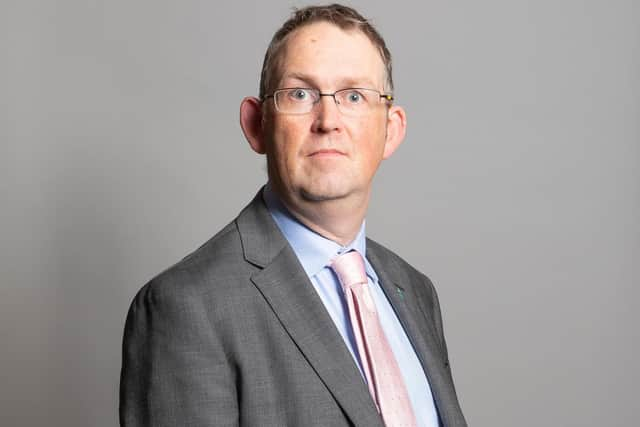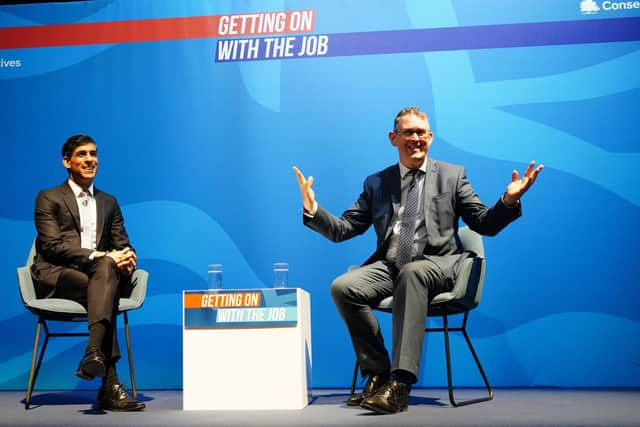Paul Maynard: Blackpool MP with cerebral palsy has been mocked and accused of being drunk, Commons hears
and live on Freeview channel 276
An MP with cerebral palsy has said he regularly receives messages accusing him of being drunk when he speaks in Parliament.
Paul Maynard, a Conservative MP and former minister, said that “every time” he speaks in the Commons he receives such messages, despite not being able to drink alcohol because it risks triggering his epilepsy.
Advertisement
Hide AdAdvertisement
Hide AdHe argued that people with the condition need to be better supported in preparing for adulthood, and that they are likely to face misconceptions and lack of understanding of the condition.


Cerebral palsy is the name for a group of lifelong conditions which affect movement and co-ordination.
Health minister Helen Whately praised Mr Maynard for his courage in speaking out.
Mr Maynard, who is chairman of the All-Party Group (APPG) on Cerebral Palsy, was speaking during an adjournment debate in the Commons.
Advertisement
Hide AdAdvertisement
Hide AdThe MP for Blackpool North and Cleveleys said: “Those of us with cerebral palsy, as we leave full-time education, encounter a much less structured world, where preconceptions about our ability tend to be so much greater and invariably utterly misguided.


“There will be people watching today on their TVs assuming I am drunk, because that always happens, every time I stand up in this place I get an email saying ‘why were you drunk before you appeared in the chamber’ when I appear on TV.
“I personally find it quite ironic because I am actually allergic to alcohol. It’s a trigger for my epilepsy. Perhaps it’s a good thing to have a Member of Parliament who is allergic to alcohol, who can always speak and indeed vote with a clear mind, if only, if only all could manage that.
“But preconceptions about cerebral palsy are rife, day in, day out.”
Advertisement
Hide AdAdvertisement
Hide AdMr Maynard said he has been “consistently struck and indeed depressed by how policy and practice, as well as day-to-day experience, has not moved on since my own passage through education and early adult life”.
He cited a report which heard that there is ignorance about the disease and incorrect assumptions of mental incapacity.
Mr Maynard told the Commons: “Cerebral palsy is not an intellectual disability, it never has been, it never will be.”
He referenced a report from the APPG which outlined recommendations on helping young people with cerebral palsy transition to adulthood, warning: “Help and advice for individuals during their transition into adulthood is all too scarce.”
Advertisement
Hide AdAdvertisement
Hide AdThe MP said: “People often ask me how I feel about what I must be missing out on in life.
The health minister said she would meet with Mr Maynard about his concerns, adding: “I think that he has argued and the report argues very compellingly for further action and focus to be taken on supporting young people with cerebral palsy on their transition from childhood into adulthood.”
The minister said there was existing healthcare guidance on how to help people with cerebral palsy manage as they grew up, but added: “The question that he might well ask is ‘Well is it being implemented? To what extent? Where have these recommendations been followed?'”